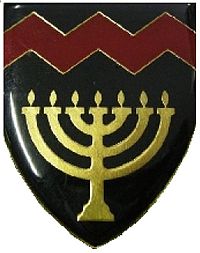
The South African Army is the ground warfare branch of South African National Defence Force. Its roots can be traced to its formation after the Union of South Africa was created in 1910. The South African military evolved within the tradition of frontier warfare fought by Boer Commando (militia) forces, reinforced by the Afrikaners' historical distrust of large standing armies. It then fought as part of the wider British effort in both World War I and World War II, but afterwards was cut off from its long-standing Commonwealth ties with the ascension to power of the National Party in South Africa in 1948. The army was involved in a long and bitter counter-insurgency campaign in Namibia from 1966 to 1990. It also played a key role in controlling sectarian political violence inside South Africa during the late 1980s and early 1990s.

The Royal Regiment of Canadian Artillery is the artillery personnel branch of the Canadian Army.

The Royal Regiment of Australian Artillery, normally referred to as the Royal Australian Artillery (RAA), is a Regiment of the Australian Army descended from the original colonial artillery units prior to Australia's federation. Australia's first guns were landed from HMS Sirius and a small earthen redoubt built, near the present-day Macquarie Place, to command the approaches to Sydney Cove. The deployment of these guns represents the origins of artillery in Australia. These and subsequent defences, as well as field guns, were operated by marines and the soldiers of infantry regiments stationed in Australia. Unlike their British and Canadian equivalents, there are no regiments of horse artillery in the order of battle of the Royal Australian Artillery. The First World War saw the raising of 60 field, 20 howitzer, and two siege batteries along with the heavy and medium trench mortar batteries. Until 19 September 1962 the Australian Artillery was referred to as the 'Royal Australian Artillery', however, on this date Queen Elizabeth II granted the RAA the title of 'The Royal Regiment of Australian Artillery'. The Regiment today consists of Regular and Reserve units.

The Sandfontein Artillery Regiment is an reserve artillery regiment of the South African Army.

The Nelson Mandela Artillery Regiment is a reserve artillery regiment of the South African Army and part of the South African Army Artillery Formation.
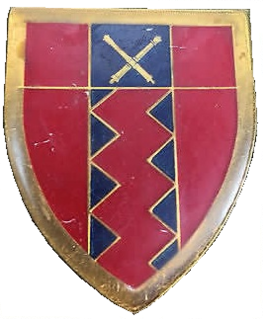
The South African Army Artillery Formation is the controlling entity of all South African Army artillery units. It draws much of its history from the South African Artillery, established in 1934 but with roots that reach back to 1921. The formation consists of both regular and reserve units. There is a separate South African Army Air Defence Artillery Formation that directs army anti-aircraft warfare units.

The Autshumato Anti-Aircraft Regiment is a reserve air defence artillery regiment of the South African Army.
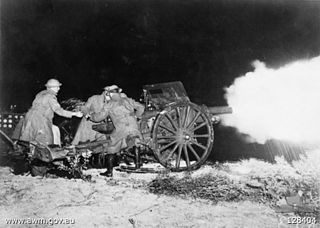
The 1st Regiment, Royal Australian Artillery is a close support regiment attached to the 7th Brigade at Enoggera Barracks in Queensland. The unit was formed in 1914 under the name 1st Australian Field Artillery Brigade, part of 1st Division Artillery during World War I and later served in World War II and the Vietnam War. It is currently re-equipping with M777A2 lightweight towed howitzers.
The 4th Regiment, Royal Australian Artillery is an artillery unit of the Australian Army. Currently it provides close artillery support to the 3rd Brigade and is based at Chau Pha Lines, Lavarack Barracks in Townsville, Queensland. The regiment was raised in its current form in 1960 and is currently re-equipping with M777A2 lightweight towed howitzers. The regiment deployed during Australia's commitment to the Vietnam War and has subsequently deployed to Singapore and East Timor.
1st Regiment Royal Horse Artillery is a regiment of the Royal Horse Artillery in the British Army. It currently serves in the armoured field artillery role, and is equipped with the AS90 self-propelled gun. The regiment is currently based at Larkhill Garrison, Larkhill. The Regiment completed its move from Assaye Barracks, Tidworth to Larkhill in June 2019.

The South Nottinghamshire Hussars is a unit of the British Army formed as volunteer cavalry in 1794. Converted to artillery in 1922, it presently forms part of 103 Regiment, Royal Artillery.
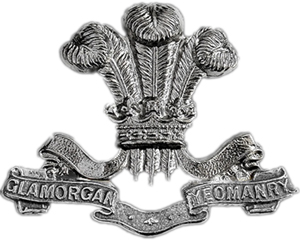
The Glamorgan Yeomanry was a Yeomanry regiment of the British Army originally raised in the late eighteenth century as a result of concern over the threat of invasion by the French. It was re-raised in the Second Boer War and saw service in both World War I and World War II. The lineage is maintained by C Troop, 211 Battery, 104th Regiment Royal Artillery.

The Steve Biko Artillery Regiment is a airborne artillery regiment of the South African Artillery.
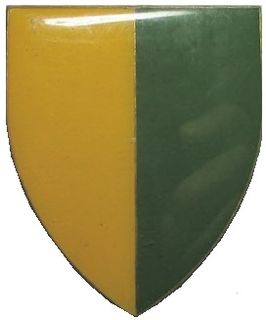
7 South African Infantry Division was a formation of the South African Army, active from the 1960s to 1999.
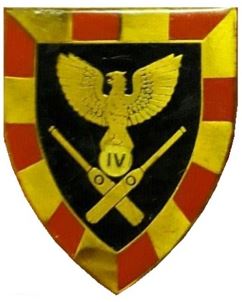
4 Artillery Regiment is based at Potchefstroom, responsible for the training of soldiers allotted to Field and Medium Artillery.
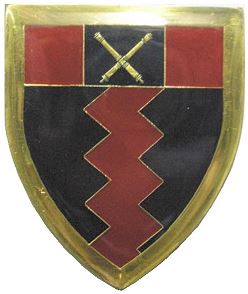
10 Artillery Brigade was a South African Defence Force formation designed for mass artillery barrages, mainly for the 7th South African Infantry Division or 8th South African Armoured Division, as well as an ad hoc formation during Operation Prone, when needed and detached and reattached where required. Smaller components would then be used at the battlegroup level.

14 Artillery Regiment was a South African Artillery unit whose name was used twice. It was re-established in Potchefstroom in 1974 and was a full-time unit responsible for the training of Permanent Force and National Service personnel.
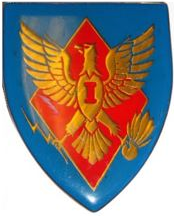
1 Locating Regiment was an artillery locating regiment of the South African Artillery. The regiment provided divisional troops but was typically organized to allocate locating batteries to brigades.

2 Locating Regiment was an artillery regiment of the South African Artillery. The regiment provided divisional troops but was typically organized to allocate locating batteries to brigades.

The Regiment Universiteit Oranje-Vrystaat was an artillery regiment of the South African Artillery. As a reserve unit, it had a status roughly equivalent to that of a British Army Reserve or United States Army National Guard unit. It was part of the South African Army Artillery Corps.
